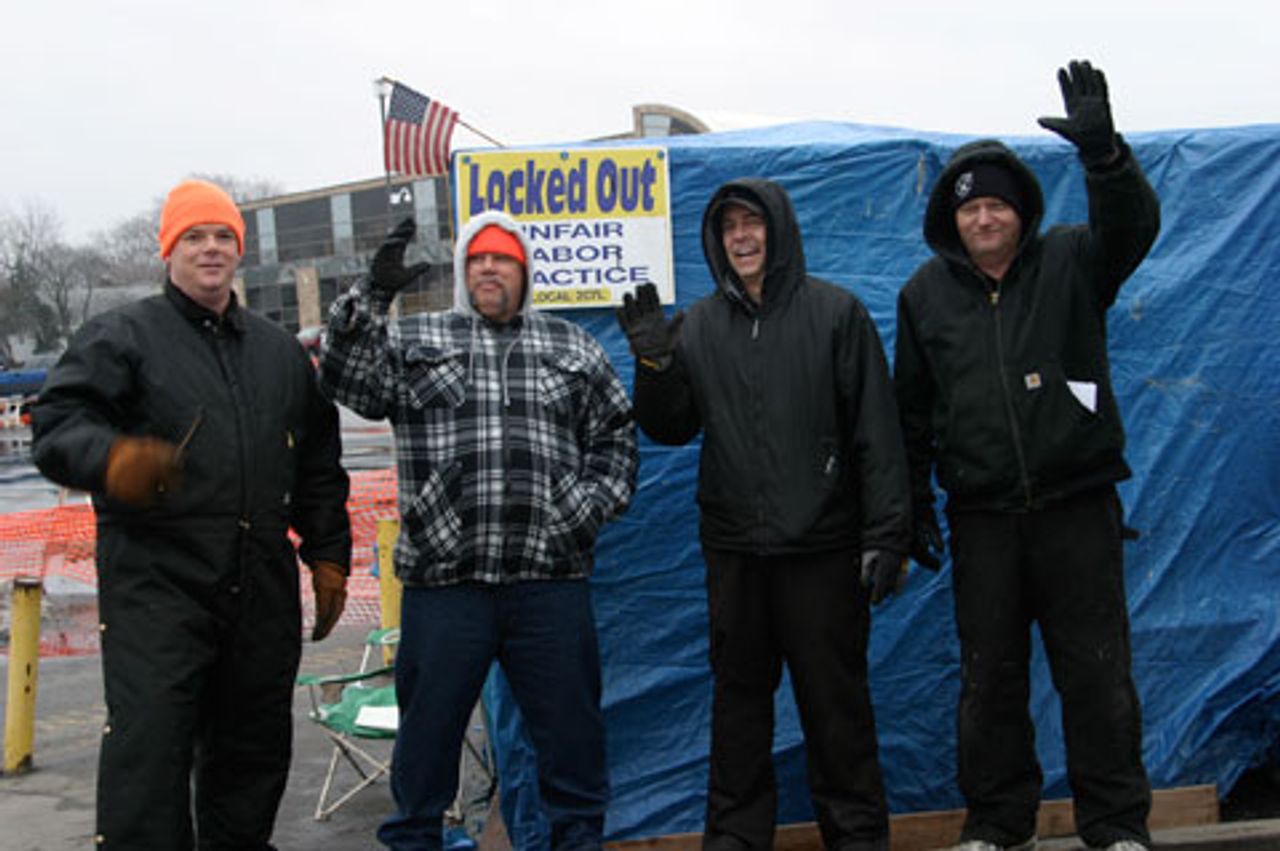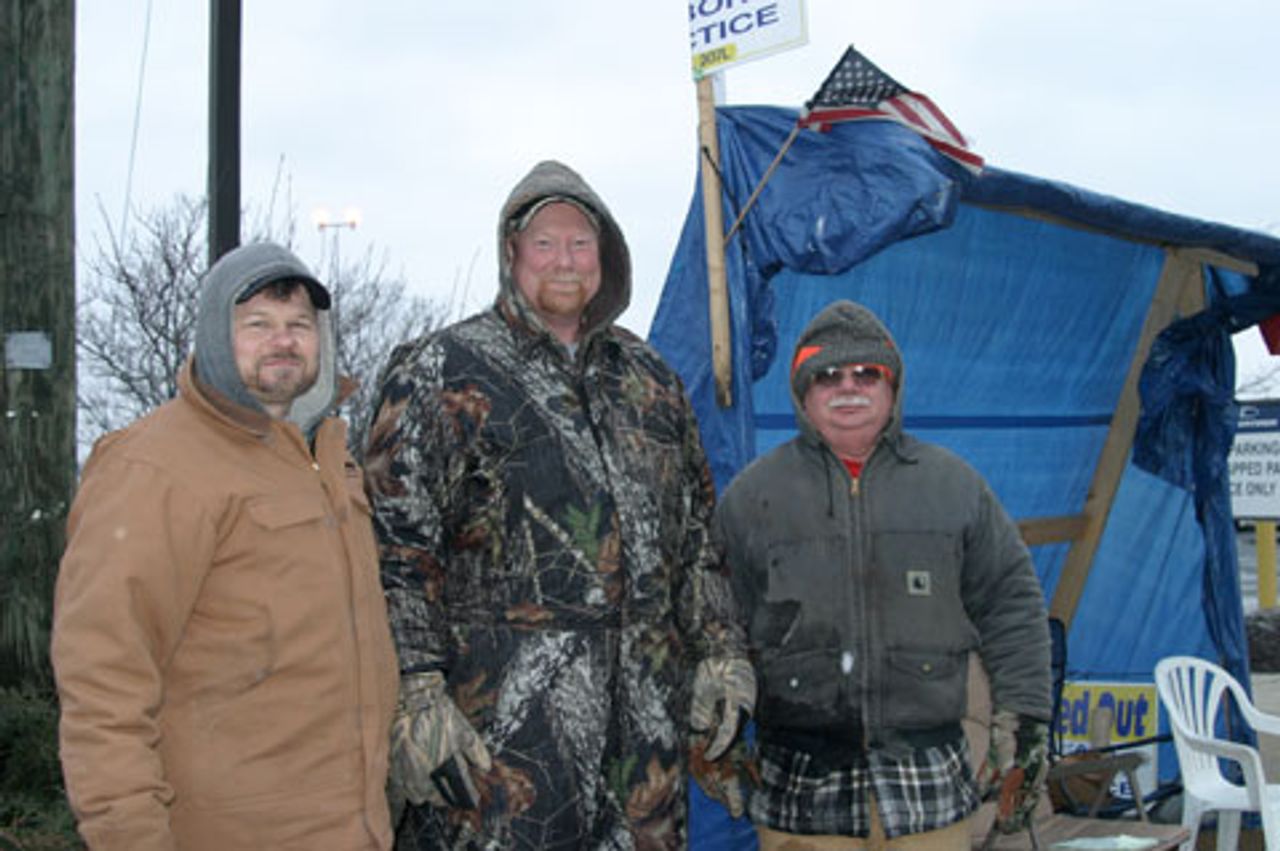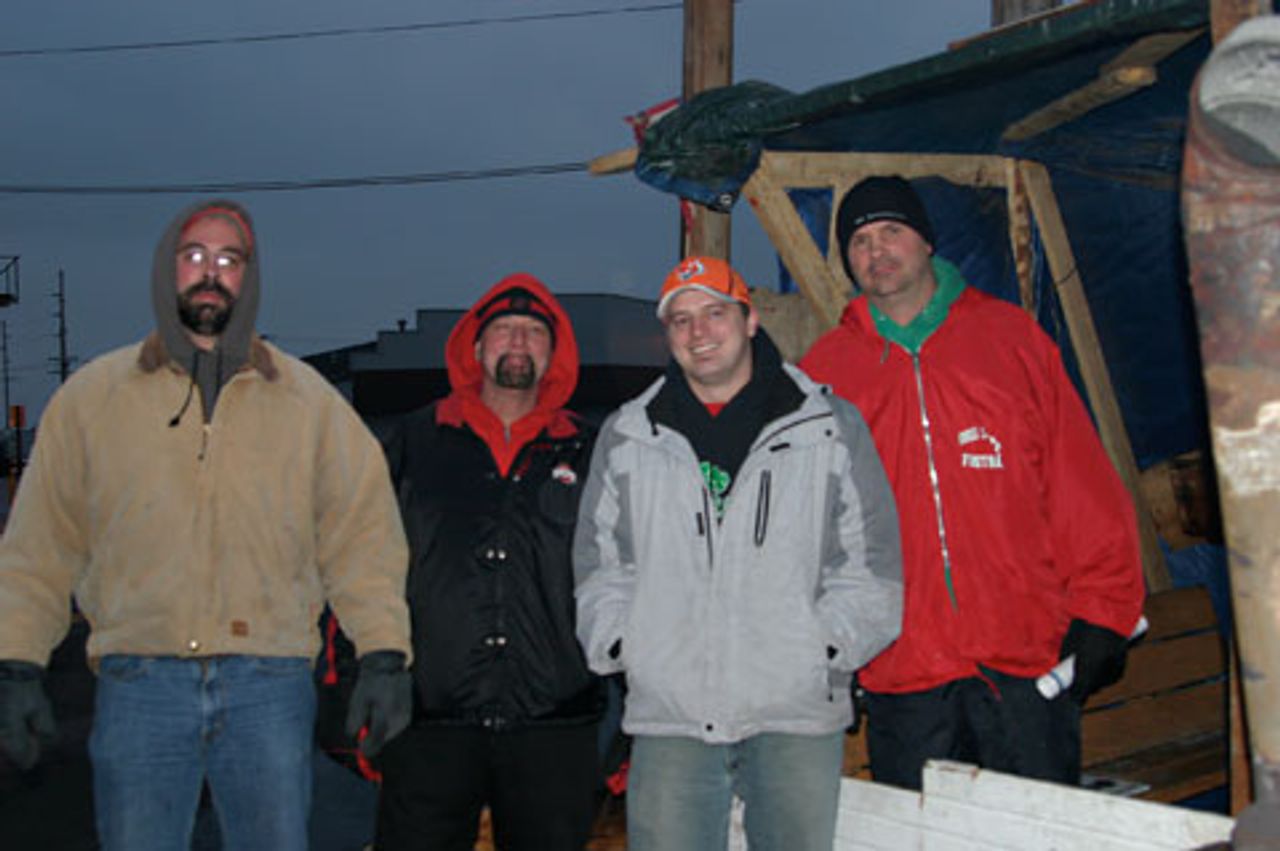The struggle by Cooper Tire workers in Findlay, Ohio is being deliberately isolated by the United Steelworkers union, which is blocking joint action with workers also facing concessions at the company’s Arkansas plant.
The local union in Texarkana, Arkansas—USW Local 752L—reached a deal for a new four-year agreement shortly before the contract expired January 20. Workers there will meet and vote on the agreement Thursday. The union has refused to reveal the terms of deal, which covers 1,500 workers.
The sellout in Arkansas comes as the struggle by 1,050 Cooper Tire workers in Ohio enters its ninth week. The workers were locked out on November 28 and scabs brought in to replace them after they rejected the implementation of a new “flexible” pay system that would lead to wage cuts of up to 40 percent.
Industry insiders have pointed to the significance of the USW action. “Cooper Tire & Rubber’s fears of concurrent production stoppages at two of its major US plants have been allayed with the reaching of a tentative agreement for workers at its Texarkana facility,” stated Tyre Industry Publications Ltd, a European tire industry publication.
After noting the fawning statements USW Local 752L President David Boone issued jointly with the company, the industry publication noted, “Behind the back patting and well-dones, Cooper is no doubt thrilled to have avoided the nightmare scenario of its two largest plants embroiled in labor disputes at the same time…At any rate, when talks on the Findlay contract do finally get underway again, the tyre maker will be able to traverse these safe in the knowledge that production at its other major site is secure.”
In other words, the corporation and the company are banking on the agreement in Texarkana to force Findlay workers to capitulate. A defeat in Ohio will be used to demand even greater concessions from the workers in Texarkana. This only underscores the need for workers to take the conduct of the struggle out of the hands of the USW and fight for the industrial and political mobilization of the entire working class—in the US and internationally—against the corporate attack on jobs and living standards.
 Steve Kraus on far right
Steve Kraus on far rightOn Monday, the WSWS spoke to workers on the picket lines. Steve Kraus, with a little more than four and half years at the plant, told the WSWS workers were shocked by the response of the company after they opposed more concessions.
“What really pissed me off was that we saved their butts in 2008,” Steve stated angrily. “They wanted us to take all these concessions in the last contract; we went with it and they turned around and did this to us.”
When he hired in Steve made 70 percent of the full wage. “For two years I filled out a time card and I saw all the money the company was making off me. Whatever this guy next to me is making, I’m creating the same amount of wealth but not being paid for. That was four years ago. Now they are proposing that guys never make it up to top wages. Ever.”
Pete Holley, who is near retirement, said workers have taken concessions for years. “I’ve been here 29 years and they have always taken something away ever since I’ve been here,” stated Pete. “But they have never given back.”
“You will see a lot of retirement once we get back in,” stated Pete. “A lot of guys like me plan to get out.”
 Bruce Parsell, Jim Daniel, Pete Holley with 29 years
Bruce Parsell, Jim Daniel, Pete Holley with 29 years“Yeah,” said Bruce Parsell at the same picket location. “They want to bring younger people in so that they can pay them a lot less money.”
“We are the new Mexico and China. It’s happening right here,” Ron Courtney said, pointing to the transformation of the US into a cheap labor haven by the Obama administration and the corporations.
“The CEO here made $4.7 million last year,” continued Ron. “If he had given that up for the guys out here who are building the tires and making the money for the company, we wouldn’t be out here. What we are fighting is corporate greed.”
 Ron Courtney, second from left; Chad Tyree, on Ron’s immediate right
Ron Courtney, second from left; Chad Tyree, on Ron’s immediate rightChad Tyree, a younger worker, strongly agreed. “I was at a company that moved to Mexico before I came here. I worked for Honeywell in Fostoria. We made spark plugs.
“They did the same thing as they did here. They separated workers into different classes, into different tiers. They pitted the younger guys against the older guys for concessions. Still it wasn’t enough.”
Ron said he had a similar experience. “I worked at a Phillips in Ottawa, Ohio. We made tubes for TVs. There were 1,800 of us and they moved out to Mexico. I worked there for 17 years. They moved there for the simple reason of cheaper labor. After that, Ford started sending plants there. Everyone did.”
Chad, only 27 years old, said it is hard for young people who often cannot leave their parents’ home because they cannot afford it. “Its difficult for young workers. How can you start a family the way things are going? You can’t afford it.”
“To be honest,” continued Chad, “I believe I will see a revolution in my lifetime.”
Subscribe to the IWA-RFC Newsletter
Get email updates on workers’ struggles and a global perspective from the International Workers Alliance of Rank-and-File Committees.
